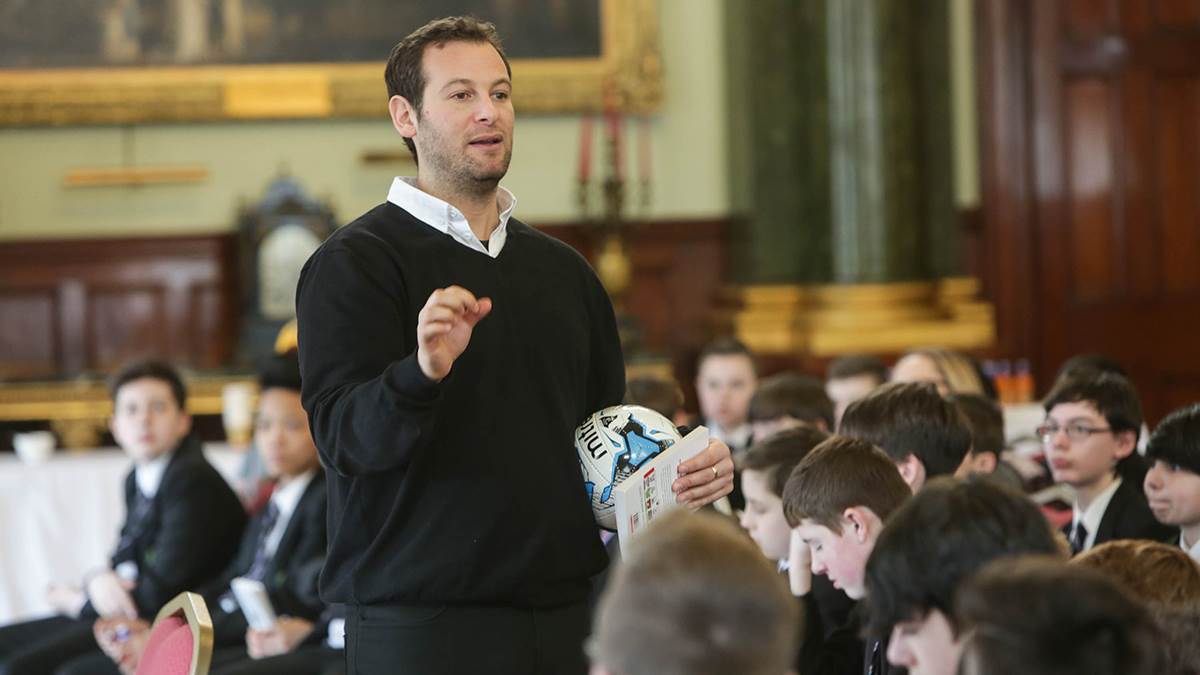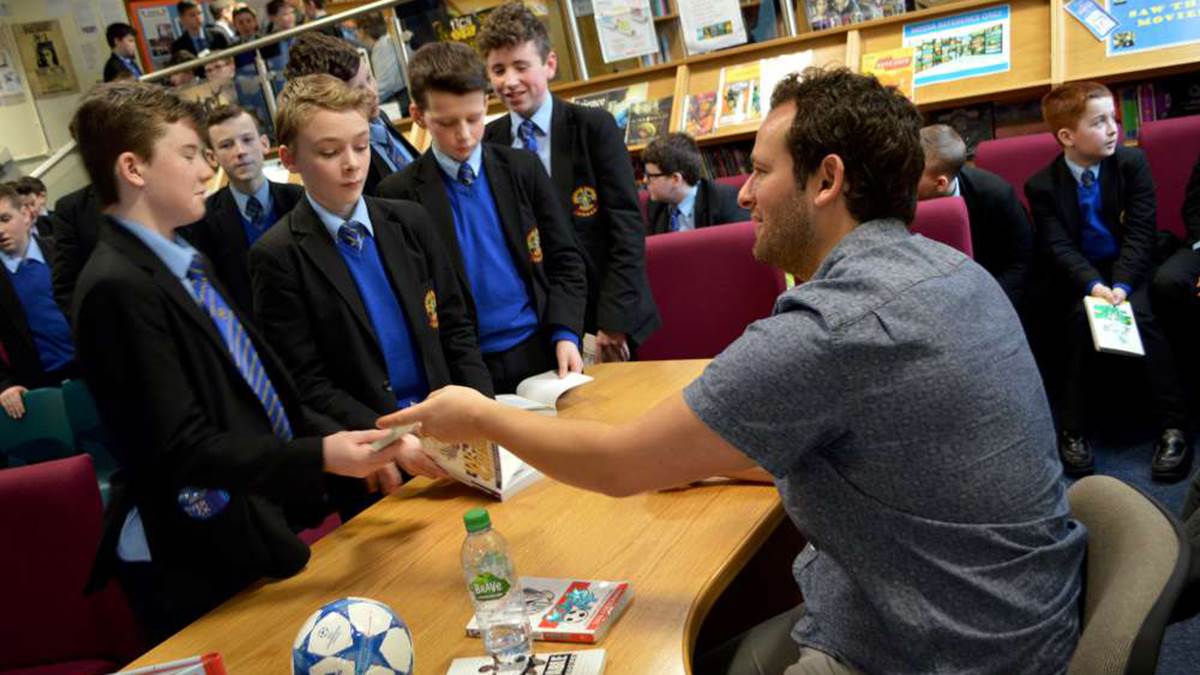Dan Freedman: Breaking down the walls
Published on: 11 Medi 2016 Author: Dan Freedman
Author Dan Freedman talks about how important it is not to force children to read and suggests some other methods.

I distinctly remember my university tutor asking me for my thoughts on the text we were studying and discussing in our seminar. I gathered myself, dug deep into my mind and began a two-minute, heartfelt speech on the plot, characters and meaning of the story. When I had finished, the room was eerily quiet and my tutor had a rather quizzical look in her eye.
'You ... haven't read the book, have you, Daniel?' she half asked, half stated.
'No, Moira,' I admitted. 'No, I haven't.'
Old habits die hard, you see. I had spent so many years at school doing anything in my power to avoid reading books that, even after I had decided that a degree in English Literature was for me, I still couldn't bring myself to actually read the book we were supposed to be there to discuss.
What I would give now to go back and do those three years again. I would commit my heart and soul to each word, savouring every sentence of some of the greatest stories ever written. It was my loss.
It can take time, though, to appreciate books and reading and to understand all the different ways in which they can make every element of our lives better. It took me over 20 years to grasp it. For some, it can take much longer.
Not forcing children to read
Forcing kids to read will only make that journey longer and more miserable and it may even prevent them from ever reaching the destination. So, if we want young people to love reading and get everything they can from it, but we can't force them and we know that pushing them (especially boys) will make them run in the other direction, then what can we do to give them the best chance of enjoying the gift and opportunity that is reading?
I don't have a foolproof solution. Sorry. If you thought I had all the answers, I don't and, as Moira Megaw, my tutor, found out, if I don't have the goods, I'll come clean. Eventually.
That said, there are some tools that I think, used in the right way, can have a positive effect. I like the DEAR (Drop Everything and Read) programme that many schools I work with adopt. I can tell you that, had I been in a physics lesson and the teacher had said: 'Right, we'll drop the physics for a short while and you can read instead,' I would have been all over my book in a millisecond and been forever grateful to it.
I also like the way in which some schools use the recommendations of older students to encourage younger pupils to read a certain book. A teacher or parent can say the same thing as many times as they want but, if a cool, older student had come up to me at school and said: 'Here, this is one of my favourite books. Give it a read and let me know what you think,' again there would have been no stopping me.
Author visits are also a great way in. When I visit schools, I can see how exchanging ideas and inspirations with the pupils really starts to open their minds. It can often be that spark which results in a pupil saying for the first time: 'I want to read that book.'

I may not have all the answers but I do know that we can't afford to make this a battle.
Every time we try to force a kid to read, we are making their journey longer and more difficult.
It's tough for anyone, especially schools who have their own benchmarks, achievements and grades that they need to achieve but I truly believe that if we can leave pupils with a sense that reading for pleasure is in their hands and is their choice, that is the best way for us to start.
Moira Megaw sadly passed away in 2004, a few years after I left the University of Bristol. We stayed in touch after I graduated and I asked her to be my referee for the jobs for which I was applying. She didn't hammer me that day when I hadn't read the book and that was the beginning of a positive bond that grew between us. I trusted her and found that I wanted to read the books we were studying and discuss them with her and my fellow students.
I'll always remember Moira and I'm grateful to her for helping me to love and understand the process of writing. That day in her tutor group, there was no way Moira was going to let me pull the wool over her eyes. These days I hope my stories are far more convincing.
Dan Freedman is the author of the Jamie Johnson series. He has visited over 1,000 schools to talk to pupils about books, reading and Going For Your Goals.





